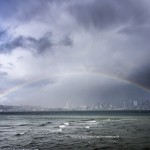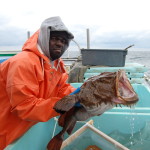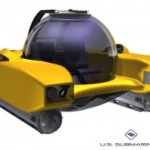[cross-posted at the SEAPLEX blog]
The romance of the sea, at least in my mind, is tied to the Age of Sail. This might be because of the inherent beauty of tall ships, or maybe because of a wee bit obsession with Patrick O’Brian’s “Master and Commander” novels (all 20 books, plus the glossary, plus the recipe book…), or maybe because I’ve always wanted to sing a shanty while actually hauling on a rope. This summer, I’ll finally get my chance.
I’ll be sailing from Hawaii to California with Sea Education Association aboard the SSV Robert C. Seamans. (I wrote about their plastic debris cruise in the Atlantic a couple weeks ago). The primary mission of the cruise is student education, but they are very kindly letting me come aboard as a visiting researcher. In fact, I type to you from aboard the Seamans at the dock in Honolulu.
I’ll be continuing the research I started last summer on SEAPLEX, further exploring the impact of plastic debris on marine life in the North Pacific Subtropical Gyre. Since we think the highest concentrations of plastic are on the very surface of the ocean, I’ll be studying with surface-dwelling (neustonic) zooplankton to see if they are interacting with the plastic debris. And I’ll be continuing my studies of the fouling community – the animals that grow directly on the plastic.
So far life on the Seamans is much like life on any research vessel preparing for a cruise – there’s a lot of securing and adjusting and last-minute runs to Home Depot. But as soon as we leave the dock on Wednesday morning, I’m going to get to learn the proper way to haul on a rope and scrub the deck. I’m very, very excited.
I don’t know what the internet situation will be, but if possible I will post updates from our journey across the Pacific. You can also follow the ship’s Twitter feed @SEA_Seamans. See you all in four weeks!






The (for short) Jones Act certainly applies to clean up vessels from non U. S. sources. It can be waived by Presidential Executive Order as was done shortly after the 9/11 debacle and three days after Katrina. A number of countries have told our Sate Department that they wish to come help but can’t risk the vessels without a waiver; these include Norway Denmark, The Netherlands, Kumait et al. The same Order could remove any EPA objections. None of this oil would have raeched our shores or poisoned our marsh areas. The hole is the fault of the rig operator and subcontractors, the fault of the fouled aters and land is the fault of our President.